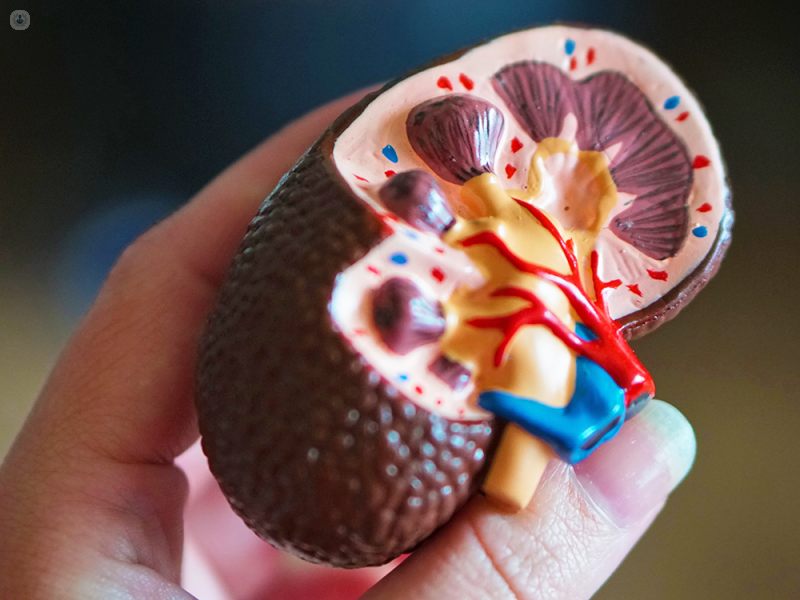Managing hypertension with kidney disease
Written by:Renovascular hypertension is a form of high blood pressure resulting from problems and abnormal changes in your kidney function. While it is commonly diagnosed and treated promptly in patients with known kidney problems, if it’s left untreated it can gradually get worse over time.
Dr David Game is a renowned nephrologist based in London and specialising in chronic kidney disease and hypertension. In this article, he explains how kidney disease can cause high blood pressure, the symptoms and diagnostic procedures and what treatment options are available.

How can kidney disease cause high blood pressure in patients?
High blood pressure can be both a cause of kidney disease (one of the most common) and also caused by kidney disease, which is then known as renovascular hypertension. There are several ways the kidneys can do this:
- If the kidneys are unable to excrete sufficient salt and water from the body then this can be retained which pushes up blood pressure
- The kidneys can release a hormone called renin which raises blood pressure by several different mechanisms
- The ‘autonomic’ nerve supply to the kidneys can increase the tone of blood vessels directly, and by hormones such as adrenaline
What are the symptoms of renovascular hypertension?
Hypertension is usually asymptomatic. From the above description, you can guess that some patients will have swelling in the body due to salt and water retention.
If blood pressure is very high, however, this can cause:
- headaches
- visual disturbance and even seizures
- a stroke
- a heart attack
How is renovascular hypertension diagnosed?
Diagnosis is done using blood and urine tests. Kidney disease can be diagnosed by finding blood and/or protein in the urine and by a raised creatinine/low eGFR blood test. Additionally, blood tests for the hormones renin and aldosterone can help. In some cases, a special scan of the kidney arteries is needed to see if there are any signs of narrowing.
How can hypertension be managed in cases of kidney disease?
In most cases, you will be required to take a combination of different blood pressure medications which act in different ways to achieve a good blood pressure result with fewer side-effects. The mainstay for most kidney patients is a class of medication called ACE inhibitors, although these do not suit everyone.
What are the treatment options?
Treatment typically relies on lifestyle factors such as weight loss, exercising more and reducing salt intake, which can help but the overwhelming majority of patients need to take medication for the rest of their lives. This can be hard to do because most people do not have symptoms and so do not feel ill; however, it is very important to reduce the long-term risk of heart attacks, stroke and progressive kidney disease.
A small subset of people can have a procedure to make the kidney arteries bigger, known as a renal angioplasty, which sometimes completely removes the need for medication.
To make an appointment with Dr David Game, visit his Top Doctor’s profile and check his availability.


